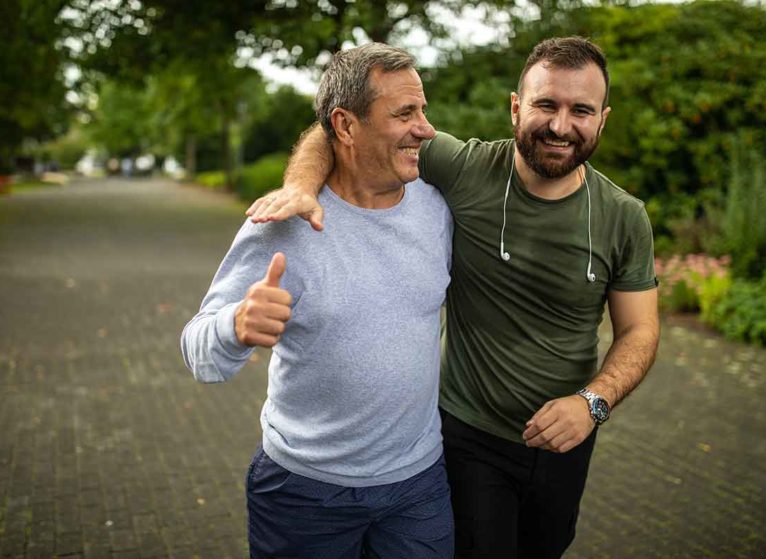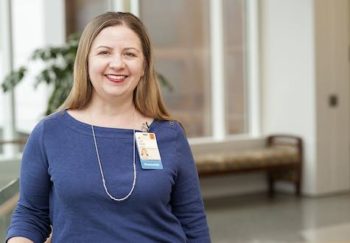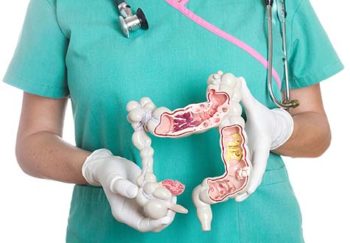There are some health topics that are more challenging to discuss than others. Colorectal cancer, cancer that begins in the colon or rectum, is one of them. If you’d rather turn to Dr. Google than share your bowel habits with your physician, you’re not alone.
The problem is that there’s a lot of misinformation out there. This may keep you from getting the care they need when you need it.
“I’m Too Young” & Other Myths About Colon Cancer Risk Factors
We’re setting the record straight on some of the most common misconceptions about colon cancer risk factors and more.
1. I have no symptoms, so I don’t have colorectal cancer.
Colorectal cancer symptoms often are mild or non-existent. You might think you have another gastrointestinal condition, such as hemorrhoids or irritable bowel syndrome.
According to Ann Rigdon, RN, administrative coordinator for the UVA Colorectal Cancer Screening Program, the most common colorectal cancer symptoms include:
- A change in bowel habits that lasts for more than four months, including diarrhea or constipation
- Blood in your stool
- Persistent abdominal pain or cramping
- Unexplained weight loss
- Fatigue/weakness
Typically, these signs become apparent only after the disease has grown or spread. At this stage, the cancer is harder to treat. That’s why screening is so important.
2. I have no family history of colorectal cancer, so I’m not at risk.
Most people who develop colorectal cancer have no known family history of it. However, if you have a parent, sibling or other first-degree relative who has had colorectal cancer, you’re four times more likely to get the disease compared with someone without a family history. A family history of polyps, precancerous growths in the colon, also increases your risk. That’s why it’s so important to talk to family members about their health history. Share this information with your physician.
“Many people find this topic embarrassing, but we have to be willing to ask questions and share because we’re losing the lives of loved ones,” Rigdon says.
Even if polyps and colorectal cancer don’t run in your family, your lifestyle choices, age and overall health may still put you at risk. Some of the most common colon cancer risk factors include:
- Sedentary lifestyle
- Diet low in fruits and vegetables
- Smoking
- Heavy alcohol use
- Obesity
- Being over age 50
3. I’m under 50, so I’m too young to be screened for colorectal cancer.
Many assume colorectal cancer isn’t something to worry about until you’re well over the hill. But in fact, more and more younger people are being diagnosed with colorectal cancer today.
Because of this recent trend, the American Cancer Society now recommends getting screened at age 45, according to primary care physician Andrew Wolf, MD. Wolf is a member of the American Cancer Society group that developed the colorectal cancer screening guidelines.
Many insurance companies are on board with the newest screening guidelines, but not all. So it’s important to reach out to ensure you’re covered prior to the test.
4. My only option for colorectal cancer screening is colonoscopy, and I dread the prep.
A colonoscopy test, which uses a flexible, lighted tube and camera to inspect the full length of the colon, is the gold standard for detecting colorectal cancer. It is the only test that can clearly identify polyps. Plus, it’s so thorough that results are valid for 10 years.
However, if colonoscopy anxiety is keeping you from getting screened, note that there are now other alternatives for people of average risk (no symptoms, no family history). This includes tests that don’t require the bowel-cleansing prep and those you can do in the privacy of your own home. So don’t forgo colorectal cancer screening altogether. Just pick the best test for you.
Get Screened for Colorectal Cancer
Learn more about the screening options available at UVA.
5. Vegetarians aren’t at risk for colorectal cancer.
It’s true that the overconsumption of red and processed meats has been directly linked to higher rates of colon cancer. However, just because you’re a vegetarian doesn’t mean you’re risk-free.
“The American Institute of Cancer Research doesn’t support the idea that vegetarians or vegans have less cancer,” explains registered dietitian Carole Havrila. “Some studies do show a lower cancer rate in this population, but it’s impossible to pinpoint the reasons why. Many vegetarians and vegans typically do other things to maintain their health – they exercise and don’t smoke, for example. So it’s hard to say if it’s their diet or all those things combined that lower their risk for cancer.”
On the flip side, if you’re a vegetarian who has some not-so-healthy habits, like drinking too much alcohol, smoking, or binging on foods high in fat, your risk for colorectal cancer may be the same as someone who eats meat. The bottom line: diet is just part of the equation when it comes to cancer prevention.



Thank you for this article. I’m sending it to my adult children. In addition to talking with a physician about symptoms, I think it’s important for parents to talk with their children about what tests they’ve had and the results. Both my husband and I have had benign polyps removed so I want our daughters to be aware that they should be screened as they approach their mid forties.
I really appreciated the part of your article that states that people are not too young to worry about colon cancer. A lot of my friends from high school have all been experiencing some of the common symptoms of colon cancer and are still not watching their diets because of their belief that they’re too young to catch it. I’ll be sure to convince them that this needs to be taken seriously so I can help them look for any colon cancer screening clinics that we can visit to be sure.
Colon cancer risk factors all data are very informative